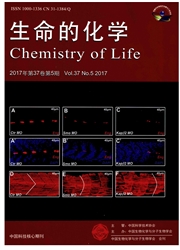

 中文摘要:
中文摘要:
TLR信号是生物体重要的病原体模式识别信号,在免疫识别和炎症反应中具有重要作用,其信号异常会导致许多免疫和炎症相关疾病的发生,因此探讨和明确TLR信号通路的调控机制具有非常重要的意义。近年来研究发现,作为重要的基因表达调控的小分子RNA,微RNA(microRNA,miRNA)能与TLR信号通路中众多靶基因mRNA的3’UTR区结合,从而抑制翻译过程或降解mRNA来发挥负性调控作用。本文就miRNA对TLR信号通路中的一些受体、信号分子、调节因子和细胞因子的负性调控作用方面进行阐述。
 英文摘要:
英文摘要:
Toll-like receptor (TLR) signaling, as a pathogen recognition signaling, plays key roles in innate immune system and the initiation of the adaptive immune system. The dysfunction of TLR signaling is strongly associated with the pathogenesis of inflammatory and autoimmune diseases. Recent studies have confirmed that microRNA can bind to the 3'UTR of the target gene mRNAs and inhibit their translation or degrade the target miRNAs in the pathway of TLR signaling. Here we focus on the negative effects of microRNA on modulating the receptors, signal molecules, transcription factors, regulators of transcription factors and cytokines in TLR signaling.
 同期刊论文项目
同期刊论文项目
 同项目期刊论文
同项目期刊论文
 POLYDATIN PROTECTS AGAINST LIPOPOLYSACCHARIDE-INDUCED FULMINANT HEPATIC FAILURE IN D-GALACTOSAMINE-S
POLYDATIN PROTECTS AGAINST LIPOPOLYSACCHARIDE-INDUCED FULMINANT HEPATIC FAILURE IN D-GALACTOSAMINE-S Anti-inflammatory effects of mangiferin on sepsis-induced lung injury in mice via up-regulation of h
Anti-inflammatory effects of mangiferin on sepsis-induced lung injury in mice via up-regulation of h 期刊信息
期刊信息
